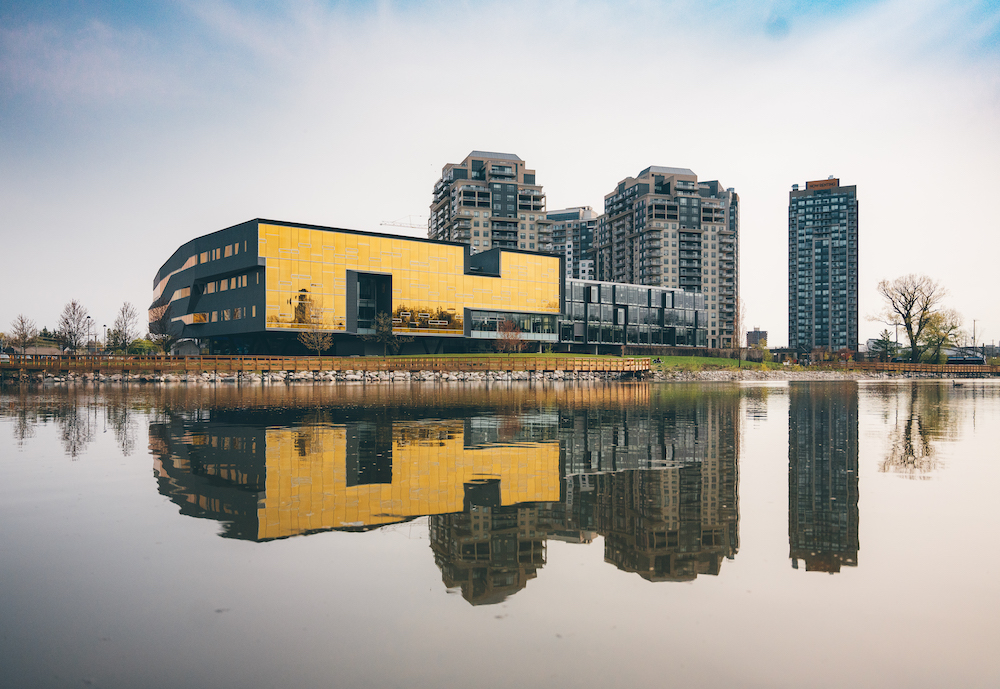Innovate Canada rotates destinations and industry sectors each year to highlight the groundbreaking work taking place across Canada’s leading innovation sectors and match them to like-minded business events. “It’s an experiential event, a journey around Canada through its economic sectors. Business events are catalysts for trade and growth; a targeted deep dive in what Canada has to offer will act as the perfect matchmaker for the right meeting at the right place and lead to economic development,” says Virginie De Visscher, Senior Director, Business Events at Destination Canada.
The concept behind Innovate Canada is in alignment with Destination Canada’s Economic Sector Strategy, which identifies six key sectors in which Canada excels, including agribusiness, finance and insurance, life sciences, natural resources, technology and advanced manufacturing. Focusing on these industries and their forward-thinking experts, Canada harnesses the power of its intellectual capital and openness to collaborating, sharing ideas and innovations to create a purposeful impact when hosting a conference. Associations get access to the full value chain of knowledge, talent, best practices and important content for their conference.
SPOTLIGHT ON ADVANCED MANUFACTURING
Now in its 4th edition, Innovate Canada zoomed in on the country’s advanced manufacturing ecosystem. Running from May 8 – 11 in Waterloo, Ontario, (with representatives from six more Canadian destinations) the event offered international delegates four days of visiting cutting-edge technology facilities and meeting some of the innovators at their place of work. A diverse range of industries including robotics, automation, additive manufacturing, autonomous vehicles with applications to automotive, aerospace, supply chain, industrial manufacturing, and more were highlighted during the various interactive tours.
In a friendly setting, Jayson Myers, CEO of NGen (an industry-led, non-profit organization leading Canada’s Global Innovation Cluster for Advanced Manufacturing), set the tone on the first day of the event: “In Canada we believe that ecosystems are important, that collaboration is key. Advanced manufacturing is more than just supply chains; it’s a value network from materials to product management and access to skilled people with innovative ideas. Connecting industry, educational institutions and government to relevant business events is a strength we have developed and nurture for an inspirational future.”
THE TORONTO-WATERLOO CORRIDOR
Surrounded by vast spaces of green land blended with modern cityscapes and friendly, diverse people, we got to explore the famous Toronto-Waterloo corridor, North America’s largest tech cluster outside of the Silicon Valley. Manufacturing there reaches a wider sense, as far-fetched ideas become a reality. The region is home to 57,000 employees at more than 1,950 manufacturing companies, including Canada’s largest robotics and automation cluster, along with globally recognized academic institutions, groundbreaking research and a world-renowned talent pipeline.
The Multi-faceted University of Waterloo
The University of Waterloo is a beacon of advanced manufacturing with the largest engineering program in the country. With testing spaces and machine rooms at their disposal, students benefit from the flexibility of the facilities to materialize their ideas. One of the university’s biggest projects is the Autonomous Vehicle Research & Intelligence Lab (AVRIL), a 10-bay R&D workspace for a wide variety of mobility applications. From hydrogen fuel research (with applications to passenger vehicles and commercial trucks alike) to automated driving and advanced driver assistance systems, the university leaves no stone unturned when it comes to vehicle innovation.

A life with robots takes shape at the Waterloo RoboHub, the university’s home of robotics.
A unique fleet of fixed-base, rolling, walking and flying robots able to assist and communicate with humans are developed with applications in building cars, exploring space, delivering coffee, defusing land mines, performing surgery… you get the idea. Some of these robots can even be integrated in a conference.
The university’s Multi-Scale Additive Manufacturing (MSAM) Lab was quite impressive with its research and development of next-generation 3D metal additive manufacturing.
The lab explores novel techniques to develop advanced materials, innovative products, modelling and simulation tools, monitoring devices, closed-loop control systems, quality assurance algorithms and holistic in-situ and ex-situ characterization techniques.
From Academia to Industry
On top of academic research, the region boasts a number of forward-thinking companies and research centres which contribute to sustainable innovation. OTTO Motors designs flexible and intelligent autonomous mobile robots (AMRs) for material handling inside manufacturing facilities and warehouses. Some of the largest companies in the world, including General Electric and Ford, have automated the world’s dullest and deadliest jobs thanks to OTTO’s designs.
Always in the world of automation, ATS focuses on custom automation services for multinational customers in markets such as life sciences, food & beverage, transportation, consumer products, and energy. With extensive knowledge and capabilities, the company can now claim that “most of the novel automation products we use probably contain a part produced here”.
Innovation and advanced manufacturing are also necessary in recycling and cybersecurity, among other things. The Smart Manufacturing and Advanced Recycling Technologies (SMART) Centre was established in 2020 to solve industry problems in robotics, automation, mechanical design and prototyping, AI/machine learning control of automation and more.
Such an extensive pool of young talent and fresh ideas coming from the university, in combination with access to industry experts and modern facilities is of high value to any association event in the sector. With a total meeting space of 55,741 sq. m. and a unique conference centre (Tapestry Hall) of 1,200 people capacity, Waterloo is well-prepared to elevate any conference.
THE PARTNERS
Make no mistake, Canada’s advanced manufacturing sector is not restricted in Waterloo. In its uniqueness to take an immersive approach of the sector, Innovate Canada brought together representatives from six more cities across the country. Edmonton, Winnipeg, Toronto, Ottawa, Montréal and Calgary shared their respective highlights during the event’s plenty networking opportunities as well as one-to-one speed-dating meetings.
With expertise across sectors like chemicals, transportation and machinery, Edmonton is the most important Canadian manufacturing hub west of Toronto. The research that takes place at the University of Alberta and the Northern Alberta Institute of Technology (NAIT) attracts conferences like last year’s Canadian Hydrogen Convention (8,000 delegates) or the Smart Manufacturing Expo 2024.
With Boeing and Magellan headquartered there, Winnipeg is the largest aerospace manufacturing hub in Western Canada, boasting the nation’s third largest source of aerospace products and parts for export. The sector is strongly supported by the presence of GE’s Aviation Engine Testing, Research & Development Centre (TRDC). Paired with strong collaboration from the university, Toronto also thrives in the aerospace manufacturing subsector. The new Downsview Aerospace Innovation and Research Hub (DAIR) unites every large aerospace company and leading postsecondary institution in the region, to advance R&D in aircraft, satellites and drones.
Calgary also excels in aerospace, particularly in geospatial data collection and analysis, drone manufacturing, and advanced aerospace communications and navigation. TECTERRA, a geospatial technology innovation support centre, is based in the city. The Living Labs program allows companies and researchers to test ideas in real-life scenarios. This program offers event planners the unique chance to integrate experiential components into their conference itinerary.
The capital boasts a strong presence in the field of engineering, with research conducted in the two local universities. The Institute of Electrical and Electronics Engineers (IEEE) Ottawa is the largest and most active of all IEEE Canada sections, attracting major events like the IEEE Nuclear and Space Radiation Effects Conference.
Combining sustainability and smart manufacturing, Montreal’s AI and automated transportation sector is home to many research institutes, like the Jalon MTL-Intelligent Transportation Institute and the Innovative Vehicle Institute (IVI). Impulsion 2023, the carbon-neutral International Summit on Electric and Smart Transportation (EST), is a testament to the city’s expertise in the field.

SUSTAINABILITY STARTS FROM WITHIN
This year’s Innovate Canada became Destination Canada’s first carbon-neutral event . Without compromising comfort or efficiency, the event was designed to offset air transport, to maximize walking tours and use EV transportation for longer distances. All off-site venues were either in carbon neutral restaurants or in LEED certified buildings, while food waste was minimized by primarily serving set menus with local and sustainably sourced food options. From recycled badges and reusable gifts to digital communications and sustainable accommodation, the event had all sustainability details mapped out in order to raise awareness among the participants.
Destination Canada, in fact, walks the walk when it comes to sustainability. In May 2022, the organization launched a first-of-its-kind national Business Events Sustainability Plan. Aimed at improving the economic, socio-cultural, and environmental sustainability of business events hosted there, the plan will empower clients to raise the bar globally and become game-shapers, leading the way toward the industry’s 2050 net zero targets.

Sixteen Canadian destinations are now participating in the Global Destination Sustainability Index (GDS-Index) as part of the Canadian Business Events Sustainability Plan. In 2024, Destination Canada will roll out its collection of actionable sustainability programs for business events hosted in Canada. Building on the data and insights of the GDS-Index benchmarking, a tailor-made dashboard will connect clients with the turnkey, purpose-driven sustainability solutions most aligned with their values and business event needs.
“Innovate Canada goes beyond the typical conference or networking event. It is meant to drive accelerated progress in a specific economic sector through targeted purposeful business events. Connections, and new partnerships even, during the event are formed not just with global clients but also between the participating cities. This increases collaboration and improves our offering as a destination. Pair that with common sustainability standards across the country and you create a valuable proposition with positive impact,” says Chantal Sturk-Nadeau, Executive Director at Destination Canada.
